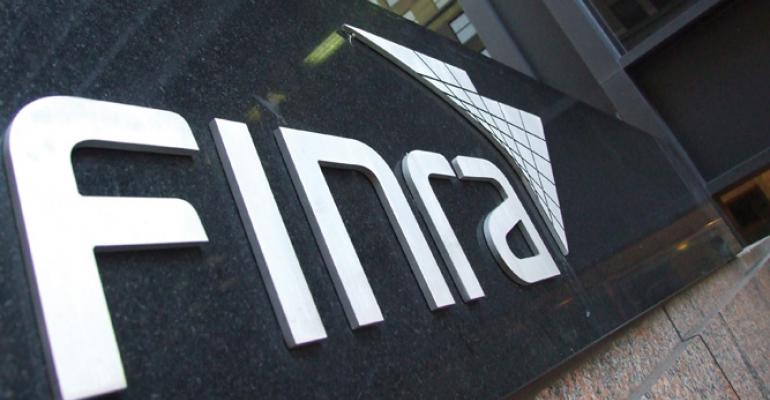The Financial Industry Regulatory Authority arbitrators grant “straight-in” expungement requests 90% of the time, according to an updated study released Tuesday by the Public Investors Advocate Bar Association. The study comes just one week after a new FINRA rule took effect, which makes it easier for state regulators to oppose expungement. PIABA believes the rule contains significant improvements to the expungement process.
“FINRA’s new changes have the potential to solve long-standing problems with FINRA expungements,” said Joe Peiffer, incoming president, PIABA, and a Louisiana-based attorney, in a statement. “Effective participation by state securities regulators is crucial to success and we are volunteering to do everything we can to ensure success. The new rules should be a massive improvement for the expungement system that will better serve investors and regulators.”
In the report, PIABA and the PIABA Foundation argued the high rate of successful expungement requests stems from the structure of the proceedings and the frequent lack of any opposition. The association, which represents investors in securities-related arbitration and litigation, analyzed 2,506 expungement awards from Jan. 1, 2019 to Aug. 31, 2023 and looked at the home states of the brokers who requested expungement. PIABA conducted similar studies of broker expungement in 2019 and 2021 and found similar results.
The study found that the number of “straight-in expungements,” in which a broker begins an arbitration process against their own firm in order to get a complaint expunged from their record, remained high, and that brokerage firms did not oppose expungement requests 92% of the time.
In about 1,301 awards (54%) that PIABA analyzed, the brokers’ home states were California (315), Florida (388), New York (262), New Jersey (179) and Texas (157). There was a significant drop-off in the average number of straight-in expungement awards from those states (Tier 1) and the home states for the rest of the country. Yet, on average, brokers are registered in 16 different states.
“The reason is that state securities regulators commonly defer to the securities regulator in brokers’ home states to make decisions about whether and how to take regulatory action, even though the brokers are often registered in multiple states at the same time,” the report said.
“Based on the data, the study concluded that the approach taken by state regulators of relying on the securities regulator in the broker’s home state to decide whether and how to participate in expungements may not be the most equitable, efficient or effective approach,” PIABA said. “The report also explained that given the steep drop off in awards between Tier-1 states and the rest of the country, it is plausible that if states coordinated and shared the responsibility of participating in straight-in expungements, even if brokers are not in their home state, they could achieve 100% participation in straight-in expungement arbitrations with negligible additional impact on existing state resources.”
FINRA’s new rules includes a mandate that a broker’s “straight-in” request be decided by a randomly selected three-person panel of arbitrators with “enhanced expungement training.” Other updates include time limits on when brokers can file these requests and prohibiting parties from agreeing to a smaller panel or from striking arbitrators.
The new rule would also require state securities regulators to be notified of “all requests to expunge customer dispute information,” and require FINRA to assist in making it easier for regulators to attend and participate in expungement hearings.
In the current expungement process, a broker goes before an arbitration panel for an evidentiary hearing, which would result in a ruling, based on evidence, whether an expungement was warranted. Brokers would need a court order to affirm the expungement, but PIABA says judges rarely go against the decision made by arbitrators.
Previously, state securities regulators were informed of an expungement request only at this last step, but it is very difficult to vacate an arbitrator’s decision by the time it reaches the court level, PIABA argues. The new rules mean state regulators would be notified about expungement requests earlier in the process, meaning they’d have more of a chance to oppose an expungement attempt.
According to the changes, FINRA would have to notify relevant state securities regulators within 15 days of the agency receiving an expungement request and must provide all documents relevant to the request, as well as documents on prior customer arbitrations related to the claim.
In 2021, FINRA had an expungement rule in process, but it withdrew the rule filing from Securities and Exchange Commission consideration after PIABA released its 2021 study. According to FINRA, the agency decided to withdraw the rule from consideration so it could further consider “whether modifications to the filing are appropriate.”
In addition to the study, PIABA also announced a new partnership with the Alabama Securities Commission to launch a training program for state securities regulators to facilitate collaboration among the states. The PIABA Foundation is also expanding its pro bono legal program to represent investors in expungement arbitrations.

